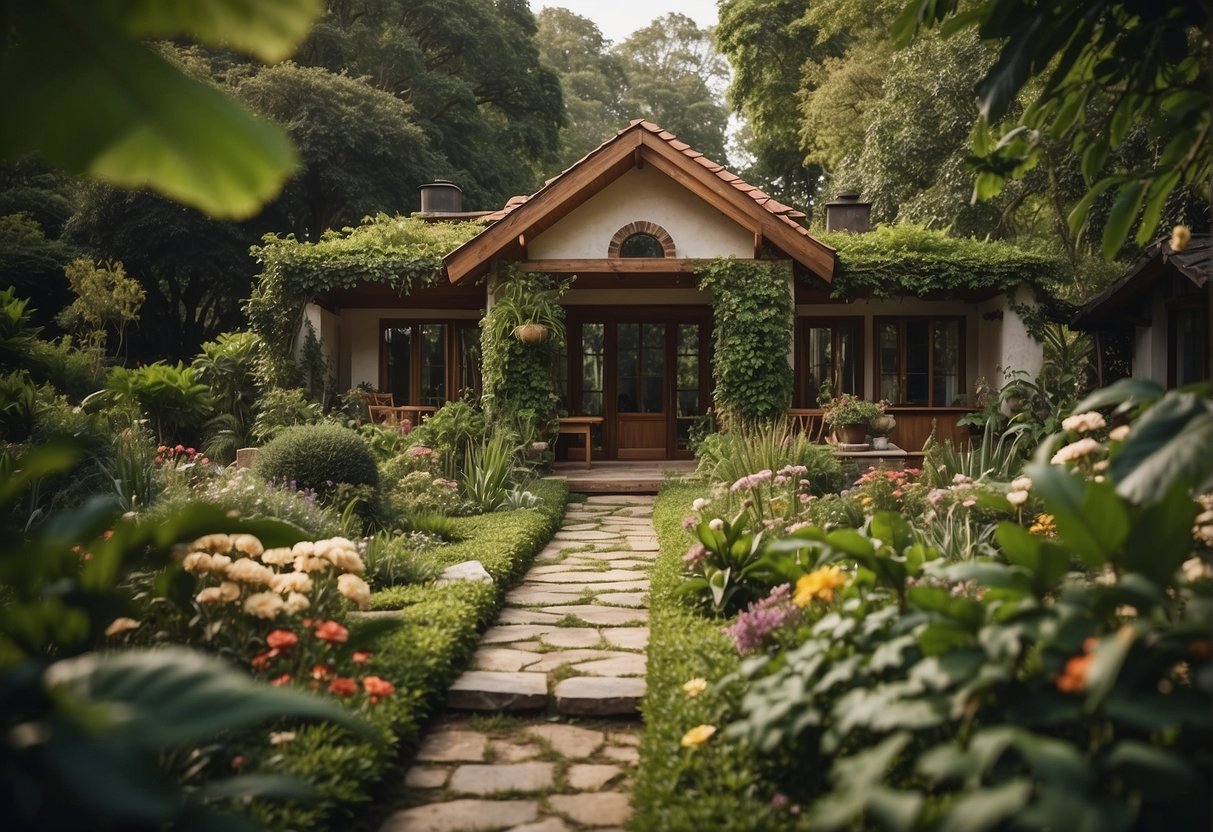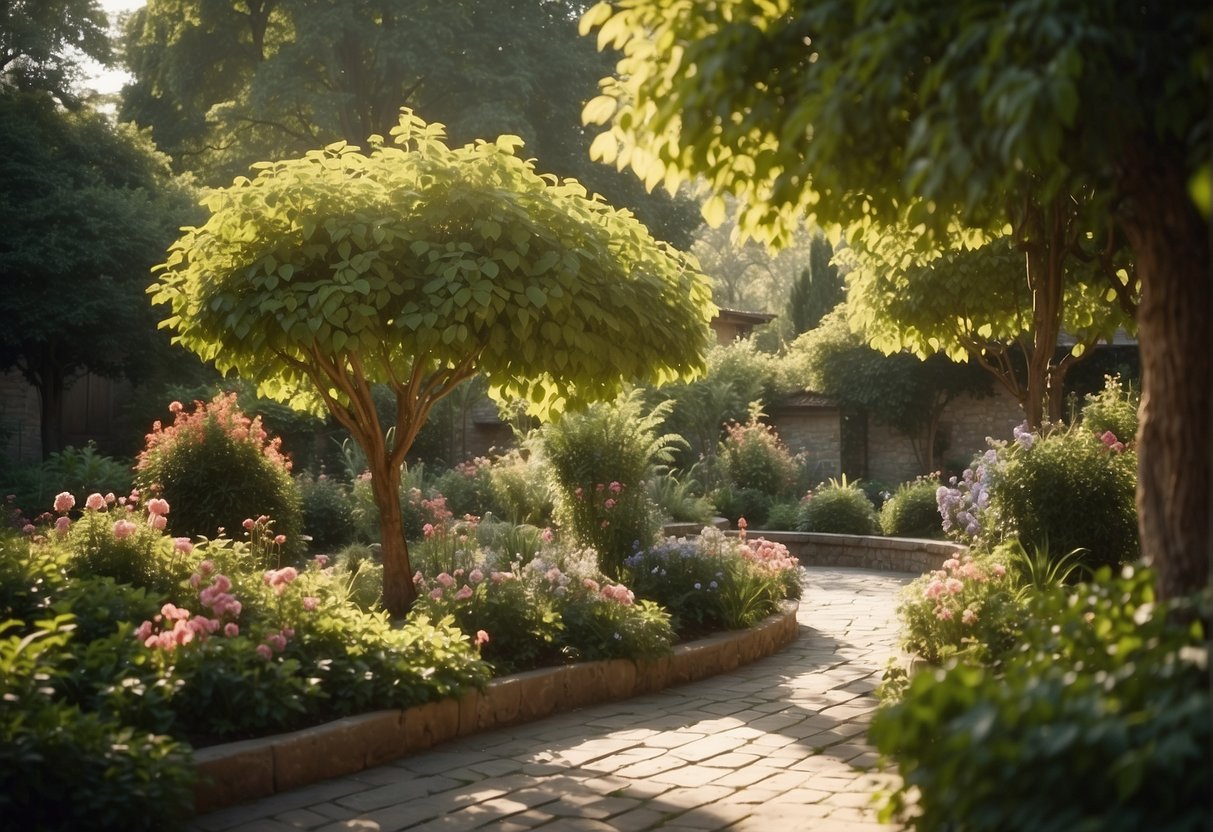If you’ve ever wondered how long Adam and Eve lived in the Garden of Eden before they were expelled, you’re not alone.
Although the Bible doesn’t provide a specific answer, some various theories and interpretations can help us understand the timeline of their stay.
Let’s analyze some of the different perspectives on this topic and try to shed some light on this age-old question.

According to the book of Genesis, God created Adam and Eve and placed them in the Garden of Eden to tend to it.
The Bible tells us that the garden was a paradise, filled with all sorts of trees that were pleasing to the eye and good for food.
Adam and Eve were free to eat from any tree in the garden except for one: the tree of the knowledge of good and evil. However, as we know, they eventually disobeyed God and ate from that tree, leading to their expulsion from the garden.
So, how long did Adam and Eve live in the Garden of Eden before this happened? Some scholars believe that their stay was relatively short, perhaps only a few days or weeks.
Others indicate that it could have been much longer, perhaps even hundreds or thousands of years. Let’s take a closer look at some of the evidence and arguments for each of these perspectives.
The Biblical Version of Adam and Eve In The Garden
The story of Adam and Eve is one of the most well-known stories in the Bible. According to Genesis 1:26-27, God created man in his image and likeness. He created them male and female and named them Adam and Eve.
The Creation of Man and Woman
In Genesis 2, we see a more detailed account of the creation of man and woman. God created Adam from the dust of the ground and breathed life into his nostrils.
He then placed him in the Garden of Eden to work it and take care of it. Later, God created Eve from one of Adam’s ribs to be his helper and companion.
The Tree of Knowledge and the Fall
God gave Adam and Eve only one commandment: not to eat from the Tree of Knowledge of good and evil.
Yet, they were tempted by the serpent to disobey God’s commandment and eat the forbidden fruit. As a result, they became aware of their nakedness and were ashamed.
They hid from God, who then cursed the serpent, the woman, and the man. He banished them from the Garden of Eden and they were forced to live a life of toil and hardship.
In conclusion, the biblical account of Adam and Eve tells the story of the creation of man and woman and their fall from grace due to disobedience to God’s commandments.
The story serves as a reminder of the consequences of sin and the importance of obedience to God.
Life in the Garden of Eden

As Adam and Eve’s first home, the Garden of Eden was a place of unparalleled beauty and wonder.
The Lord God created it as a perfect environment for them to live in, providing everything they needed to survive and thrive.
Daily Existence and Responsibilities
In the Garden of Eden, Adam and Eve had everything they needed to sustain themselves.
The Lord God had provided them with an abundance of food, water, and shelter. They were responsible for tending to the garden and caring for the animals that lived there.
According to the Bible, Adam was tasked with naming all the animals in the Garden of Eden, which was no small feat.
This responsibility likely took some time to complete, but it also gave Adam a sense of purpose and fulfillment.
The Relationship with God
In the Garden of Eden, Adam and Eve had a unique relationship with God. They were able to communicate with Him directly and had a deep understanding of His will and purpose.
They walked with Him in the cool of the day and enjoyed His presence.
The Tree of Life was also present in the Garden of Eden, which was a symbol of eternal life and a reminder of God’s goodness.
Adam and Eve were free to eat from any tree in the garden, except for the Tree of the Knowledge of Good and Evil.
The Duration of the Stay in Eden

The Bible does not provide a clear answer to the question of how long Adam and Eve lived in the Garden of Eden.
Nevertheless, we can infer some information from the text. According to Genesis 2:15-17, God commanded Adam not to eat from the tree of the knowledge of good and evil, warning him that if he did, he would surely die.
This implies that Adam and Eve were created mortal and that they were not intended to live forever in the Garden.
The Book of Jubilees, a Jewish text from the Second Temple period, provides a more specific answer.
According to Jubilees 3:27-28, Adam and Eve were in the Garden of Eden for seven years before they were expelled. This is a relatively short time compared to the lifespan of Adam, who lived to be 930 years old according to Genesis 5:5.
It is important to note that the concept of time in the Garden of Eden may have been different from our modern understanding of time.
Some theologians suggest that time did not exist in the Garden and that Adam and Eve may have experienced a timeless existence. While this is a matter of interpretation, it is clear that the duration of their stay in the Garden was relatively short.
The Expulsion and Its Aftermath
After Adam and Eve sinned, they were expelled from the Garden of Eden.
This event marked the beginning of a new era for humanity, one that was characterized by sin, death, and the curse of the ground.
The Consequences of Sin
The consequences of sin were immediate and far-reaching. Adam and Eve were banished from the Garden of Eden and forced to live outside of paradise.
They were also subjected to physical and spiritual death, as sin had separated them from God.
The ground was cursed, and Adam was told that he would have to work hard to grow food. Eve was told that she would experience pain in childbirth.
Life Outside Paradise
Life outside of paradise was difficult for Adam and Eve. They were no longer surrounded by the beauty and abundance of the Garden of Eden.
They had to work hard to grow food, and they were vulnerable to disease, hardship, and death. They also had to contend with shame and guilt, as they were aware of their nakedness and their sin.
To prevent Adam and Eve from returning to the Garden of Eden, God placed cherubim and a flaming sword at the entrance. Adam and Eve were also given garments of skin to cover their nakedness.
Adam and Eve’s sin had far-reaching consequences for their family as well. Their first son, Cain, killed their second son, Abel, out of jealousy.
Cain was banished from the family, and he went on to found his city.
In summary, Adam and Eve’s expulsion from the Garden of Eden marked the beginning of a new era for humanity.
They were subjected to the consequences of sin, including physical and spiritual death, the curse of the ground, and shame. Life outside of paradise was difficult, and their sin had far-reaching consequences for their family.
The Legacy of Adam and Eve
Genealogy and Lifespan
According to the Bible, Adam and Eve had three children: Cain, Abel, and Seth. Cain later killed Abel, and Seth became Adam and Eve’s third son.
The Bible also provides a genealogy of Adam and Eve’s descendants, which includes many well-known figures such as Noah, Abraham, and King David.
The Bible states that Adam lived for 930 years, while Eve’s lifespan is not mentioned. However, it is believed that Eve would have lived for a similar amount of time as Adam.
This lengthy lifespan is in stark contrast to the relatively short lifespans of humans today.
Theological Significance
The story of Adam and Eve is significant in Christian theology for several reasons. It is believed that Adam and Eve’s sin in the Garden of Eden led to the concept of original sin, which is the idea that all humans are born with a sinful nature.
This sin separates humans from God and requires redemption through Jesus Christ.
The story of Adam and Eve also highlights the importance of faith and grace. Despite their sin, God continued to show grace to Adam and Eve, providing them with clothing and promising a savior. This grace is extended to all humans through Jesus Christ.
In addition, the story of Adam and Eve emphasizes the importance of eternal life. While humans today have relatively short lifespans, the promise of eternal life through faith in Jesus Christ is a central tenet of Christian theology.
